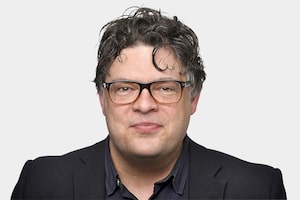Ultra Electronics Forensic Technology Inc., a Canadian company known worldwide for its ballistics technology, has struck a deal with federal prosecutors to settle corruption and fraud charges levelled against it that were made public just days ago.
The Montreal-based company said in an e-mailed statement Wednesday that it entered into a remediation agreement, also known as a deferred prosecution agreement, with the Public Prosecution Service of Canada. The deal is still subject to approval by the Quebec Superior Court, which was to begin hearing the matter Wednesday morning.
The RCMP said last week that it charged Montreal-based Ultra Electronics Forensic Technology and four of its executives under the federal Corruption of Foreign Public Officials Act and the Criminal Code. The charges were laid after an investigation by the RCMP’s Sensitive and International Investigations (SII) section that began in 2018, the force said.
Robert Walsh, Forensic’s founder, as well as Philip Heaney, René Bélanger and Michael McLean, were charged with bribery of a foreign public official and defrauding the public, the RCMP said. The company was charged with the same offences.
The case against the four men will continue because deferred prosecution agreements do not apply to individuals. They were scheduled to appear in court Wednesday.
The RCMP alleges that the corporation and the accused individuals “directed local agents in the Philippines to bribe foreign public officials to influence and expedite” a multimillion-dollar contract. The police force has provided no other details.
Ultra Electronics Forensic Technology is known as a key player in ballistics identification, and its products are used daily by law enforcement agencies around the world. The technology helps police cross-reference firearm and ammunition-related evidence from crime scenes by matching bullets and cartridge cases fired from the same gun.
The company launched as Walsh Automation Inc. in 1991 and was later bought by British defence contractor Ultra Electronics Holdings PLC in 2014. Its customers include the RCMP; the Australian Crime Intelligence Commission; and the U.S. Bureau of Alcohol, Tobacco, Firearms and Explosives, according to its website.
London-based Ultra Electronics Holdings disclosed as part of its half-year results report in July, 2019, that it was investigating a “conduct of business issue” associated with the Philippines and that it was “keeping relevant authorities informed.” The company said Britain’s Serious Fraud Office was also continuing its investigation in a separate case involving Ultra in Algeria.
“Ultra has been investigating in full co-operation with the Royal Canadian Mounted Police (RCMP), a historical bribery-related issue in the Philippines,” Gabriella Colley, a spokeswoman for the British parent company, said in the statement Wednesday. “No one implicated is involved with the company today, and this contract is no longer active. The conduct in question occurred more than five years ago, and we are confident in the current company’s management, culture, systems and controls.”
If it is approved by the court, the agreement with Ultra Electronics Forensic Technology would be the second deferred prosecution agreement sanctioned since the new legal mechanism became law in 2018 and the first handled by the federal prosecution service.
Quebec engineering company SNC-Lavalin Group Inc. won a deferred prosecution agreement earlier this year to settle charges against two of its units related to an RCMP investigation into bribes paid on a $128-million contract to refurbish Montreal’s Jacques Cartier bridge in 2002. That deal was handled by Quebec’s office of criminal prosecutions, known as the Directeur des poursuites criminelles et pénales.
Deferred prosecution agreements allow companies to acknowledge responsibility and avoid a trial in exchange for paying a fine and agreeing to outside independent oversight. Already present in several other countries, such as the United States and Britain, the legal mechanism was introduced by the federal government four years ago as part of an effort to widen its options in fighting corruption and other white-collar crime.
The involvement of federal prosecutors is significant and will likely be more closely watched by legal observers and anti-corruption advocates than the SNC Quebec case, said Jennifer Quaid, an associate professor of law at the University of Ottawa.
“The sense was that it’s going to be more significant seeing what the feds do because at the end of the day, the [remediation agreement] regime was considered to be particularly important for foreign corruption,” Ms. Quaid said. “And foreign corruption is a bit of an area on which Canadian enforcement does not shine particularly well in comparison to our peer countries.”
 Nicolas Van Praet
Nicolas Van Praet